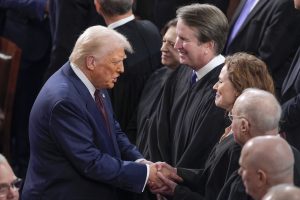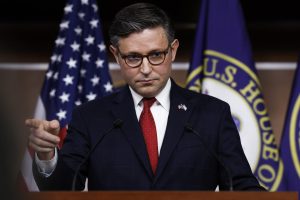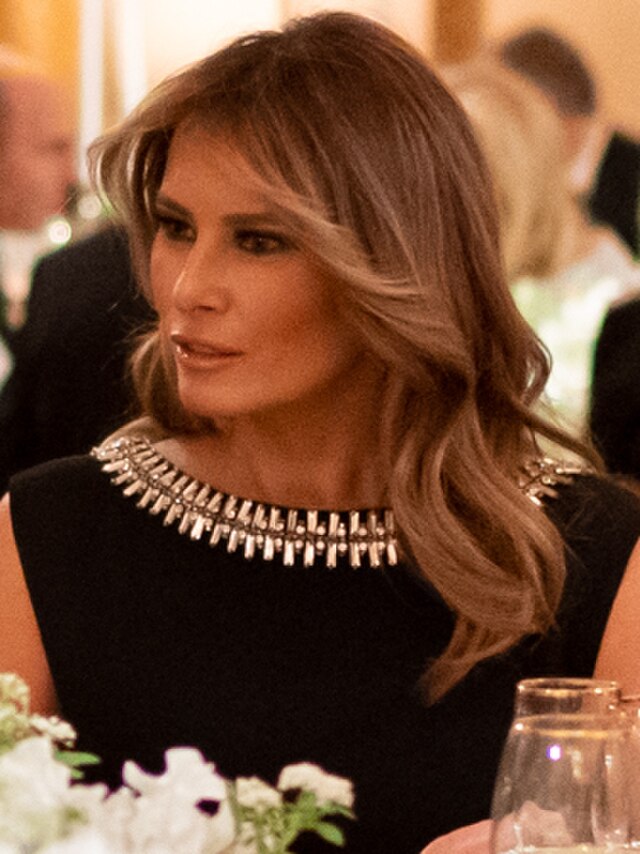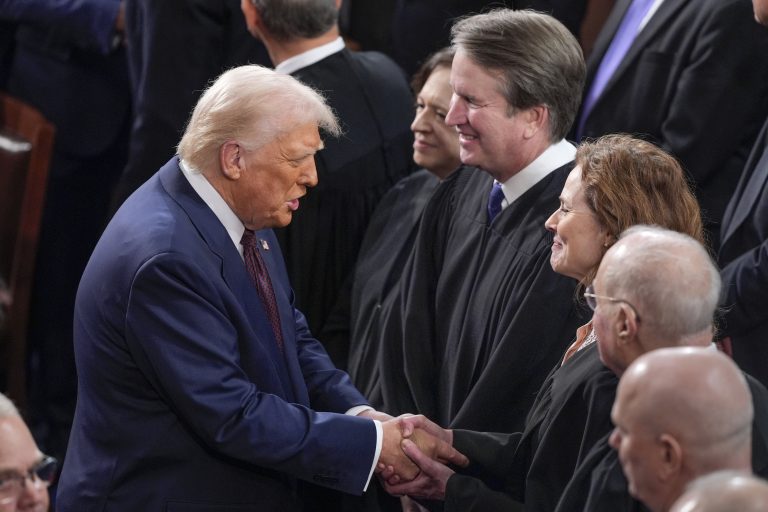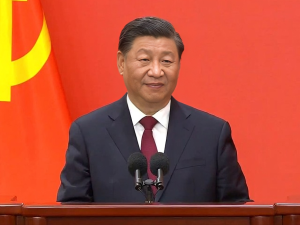First Lady Melania Trump revealed Friday that she has established an “open line of communication” with Russian President Vladimir Putin concerning Ukrainian children displaced by the ongoing war between Russia and Ukraine.
Speaking from the White House Grand Foyer, Melania addressed a small audience that included representatives from humanitarian groups and foreign diplomats, describing months of correspondence and indirect talks with the Kremlin aimed at helping reunite children separated from their families.
“For the past few months, both sides have participated in several back-channel meetings and calls, all in good faith,” Melania said. “We have agreed to cooperate with each other for the benefit of all people involved in this war.”
The First Lady said she first reached out to President Putin in August, sending a personal letter that expressed concern for children “caught in the middle of an inhumane conflict.” She added that Putin responded in writing, signaling what she described as “a willingness to engage directly” on the issue.
According to Melania, Russia provided information about several Ukrainian minors currently residing in Russian territory. That exchange, she said, led to the establishment of an ongoing “open channel of communication” between her office and Putin’s representatives.
“My representative has been working directly with President Putin’s team to ensure the safe unification of children with their families between Russia and Ukraine,” she said.
Eight Children Reportedly Reunited
Melania announced that eight Ukrainian children who had been “living in turmoil” were reunited with their families within the past 24 hours through coordination involving humanitarian organizations and intermediaries in both countries.
“Russia has demonstrated a willingness to disclose objective and detailed information reflective of the current situation,” she said. “They have provided details on all of the children involved in the reunification process this week.”
The First Lady thanked international charities and “faith-based partners” assisting with the reunifications and emphasized that the effort is ongoing.
“I hope peace will come soon. It can begin with our children,” she said. “Thank you.”
While Melania’s remarks were welcomed by some humanitarian advocates, independent verification of the identities of the reunited children or the full scope of Russia’s cooperation remains limited. Neither the State Department nor the Russian Foreign Ministry provided additional documentation beyond Melania’s public statements.
Background and Context
The comments mark the most direct acknowledgment yet of U.S.–Russian cooperation on humanitarian matters since the start of President Donald Trump’s second term. Relations between Washington and Moscow have remained tense, with U.S. sanctions still in place and American intelligence agencies accusing Russia of continuing cyber operations targeting NATO countries.
Melania’s initiative appears to be a personal effort separate from official diplomatic negotiations. The First Lady’s office confirmed that her outreach was “humanitarian in nature” and conducted “in close coordination” with the U.S. National Security Council, but not as a formal diplomatic channel.
According to Reuters, senior White House officials said Melania’s correspondence was shared with the State Department “for transparency” but emphasized that it did not represent a shift in U.S. policy toward Russia.
Administration officials privately described the effort as “symbolic but constructive,” noting that even limited cooperation over humanitarian issues “can serve as a confidence-building measure.”
Russian Response
In Moscow, Russian state media outlets including RIA Novosti and TASS confirmed receipt of the First Lady’s letter and reported that Putin had “welcomed” her interest in the welfare of Ukrainian children. Russian Deputy Foreign Minister Sergei Ryabkov acknowledged what he called “working-level contacts” with U.S. representatives “on matters related to family reunification.”
Ryabkov also used the occasion to criticize Washington’s broader stance on the war, saying progress on peace talks had “stalled after the strong momentum from Anchorage,” referencing Trump and Putin’s August meeting in Alaska.
“Unfortunately, we must admit that the momentum toward agreements has, to a large extent, been exhausted,” Ryabkov said, blaming European governments for “destructive actions” that, in his view, obstruct further negotiation.
International Reaction
Human rights groups cautiously welcomed Melania’s announcement. The International Committee of the Red Cross (ICRC) said it was “encouraged” by the reported reunifications but stressed the need for independent verification and systematic access to all children transferred from Ukraine to Russia.
“Any initiative that leads to the safe return of children to their families is positive,” the ICRC said in a statement. “However, the process must be transparent and consistent with international law.”
Ukrainian officials in Kyiv declined to comment on the details of Melania’s claims but reiterated their longstanding demand for the return of what they estimate to be more than 19,000 Ukrainian minors taken to Russia or Russian-occupied territories since the invasion began in 2022.
Looking Ahead
In Washington, Melania’s remarks drew both praise and skepticism. Supporters described her as taking an “unconventional but compassionate approach” to diplomacy, while critics questioned whether her outreach might be exploited by Moscow for political messaging.
The First Lady’s office said she intends to continue humanitarian engagement and plans to host a White House roundtable later this month with representatives from UNICEF, the Red Cross, and the International Organization for Migration.
A White House aide told reporters that Melania’s efforts are “strictly humanitarian” and “not an endorsement of the Russian government’s broader conduct in Ukraine.”
“This is about the children, not politics,” the aide said. “The First Lady believes that empathy can build bridges where politics fail.”

James Jenkins is a celebrated Pulitzer Prize-winning author whose work has reshaped the way readers think about social justice and human rights in America. Raised in Atlanta, Georgia, James grew up in a community that instilled in him both resilience and a strong sense of responsibility toward others. After studying political science and creative writing at Howard University, he worked as a journalist covering civil rights issues before dedicating himself fully to fiction. His novels are known for their sharp, empathetic portraits of marginalized communities and for weaving personal stories with broader political realities. Jenkins’s breakout novel, Shadows of Freedom, won national acclaim for its unflinching look at systemic inequality, while his more recent works explore themes of identity, resilience, and the fight for dignity in the face of oppression. Beyond his novels, James is an active public speaker, lecturing at universities and participating in nonprofit initiatives that support literacy and community empowerment. He believes that storytelling is a way to preserve history and inspire change. When not writing, James enjoys jazz music, mentoring young writers, and traveling with his family to explore cultures and stories around the world.

